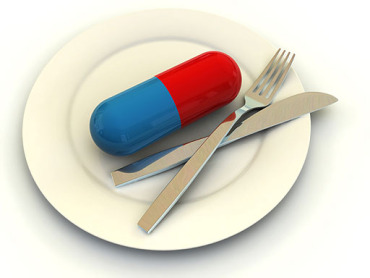Patient Summit USA 2012
The right mix of payer buy-in, patient support, digital engagement and partnerships
Young ADHD Patients Need More Than Liquid Medication
The latest Pfizer once-daily liquid medication only represents the first victory for young ADHD patients, who need more than drugs to improve their quality of care.

Pfizer acquired Quillivant XR, the first liquid ADHD medication, from Next Wave Pharmaceuticals as they plan to expand their established-products unit, by creating a reformulated version of an older, branded drug. This product will be available in US pharmacies in January while Next Wave continues working on a chewable tablet format of this ADHD mixture.
Ann Childress who is the president of the Centre of Psychiatry and Behavioural Medicine as well as one of the investigators in the laboratory study for Quillivant XR states that there is a need for a liquid ADHD medication. Not only are there are patients who have difficulties in swallowing pills or capsules but this once-daily liquid treatment has an effect for 12 hours after taking the initial dose.
Additionally, a US survey which featured mothers that have children with ADHD supports this new treatment. It states that 51% of respondents faced challenges adjusting to their children’s treatment schedule between holidays, school days and weekends. 81% of them would appreciate a long-lasting medication for the entire school day while 41% had to negotiate with their child to take the medication before school. Negotiation would occur as 52% claim that that their child did not like swallowing a pill or capsule.
Despite this initial success, the pharmaceutical industry can develop more treatment options for young ADHD patients. According to a recent report relating to young children with ADHD in the UK and US, more non-medical treatment options are needed for ADHD but these are not always readily available. Author of the report, Dr. Ilina Singh reveals that this is due to the long waiting lists for various kinds of behavioural treatment as well as medical checkups that only focus on the children’s weight and side effects instead of helping them cope with the normality of life.
Furthermore, the report suggests that as some children matured over time; they were able to develop their own behavioural strategy which enabled them to stop the medication and manage their own actions. Through collaborating with doctors, the pharmaceutical industry could engage with these young patients by way of a discussion or questionnaire in order to find out the different ways that they manage their ADHD behaviour. With this information, pharmaceutical companies could develop behavioural strategies for children that initially work hand in hand with the relevant medication. Then, after a few months, Pharma could stop the medication and see whether a strategy has worked in order to test its rate of success. At first, the pharmaceutical industry would have to develop a strategy that fits in with their school day but then as they progress towards adulthood, strategies would vary according to the individual’s life.
By developing a liquid form of medication, Pfizer has diversified its product base while meeting a specific medical need. Although many pharmaceutical companies can learn from its example, Pfizer could gain more support for its new treatment option if it developed a behavioural programme to go with it. Like most other patients, young individuals with ADHD want to keep their quality of life regardless of their condition. Pharmaceutical companies should use the doctor’s experience of treating these types of patients to guide their next holistic victory for children with ADHD.
Patient Summit USA 2012
The right mix of payer buy-in, patient support, digital engagement and partnerships
